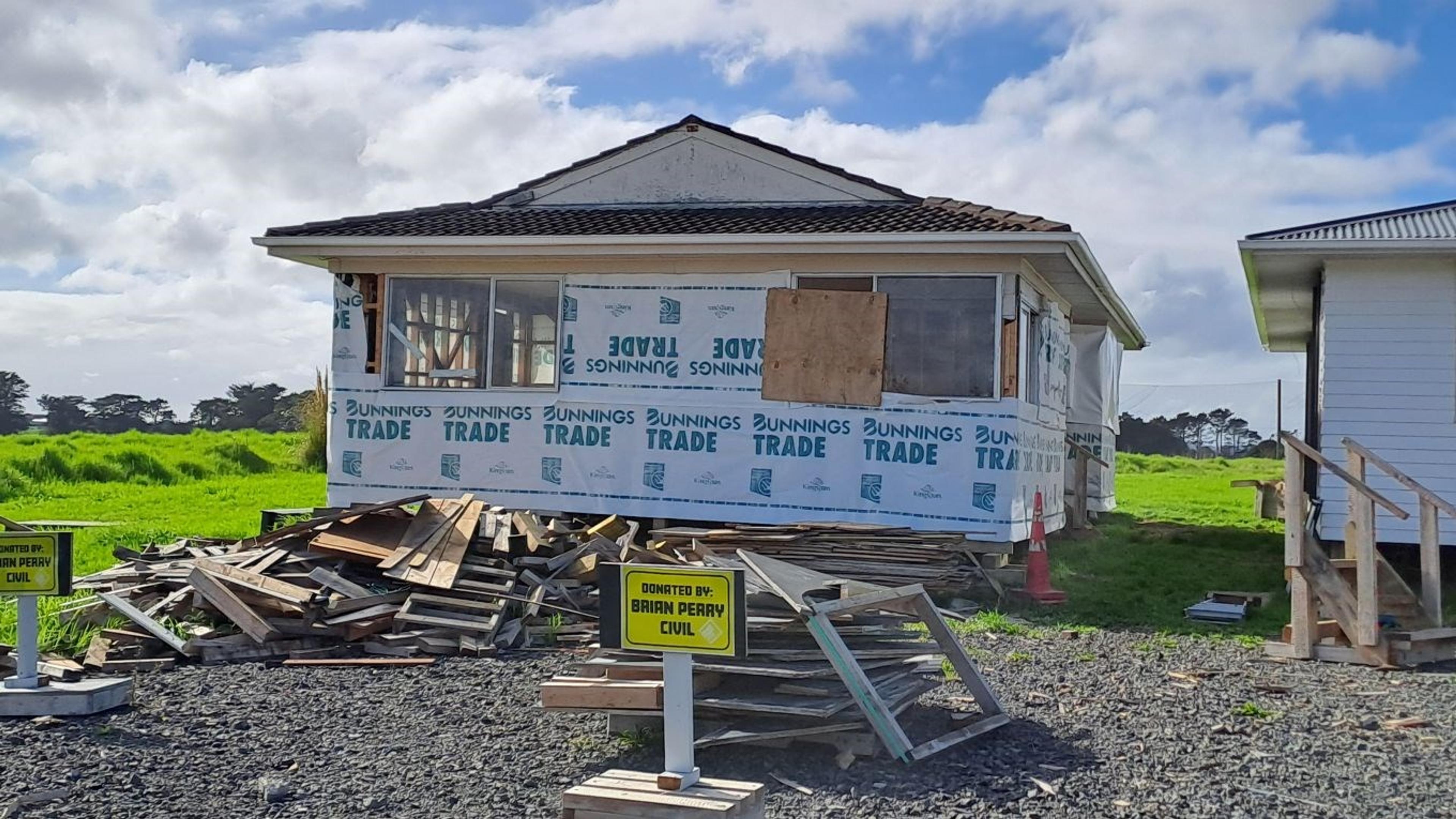

Former Fijian prime minister and coup leader Frank Bainimarama is spending the next 12 months in prison for corruption.
Photo/supplied
‘Get out of this cycle of violence’: Fijians urged to respect the law and democracy
Following the sentencing of Fiji's former prime minister and police commisioner, political expert Netani Rika says people must address the misconceptions and misunderstandings that exist between the communities and bring about healing.

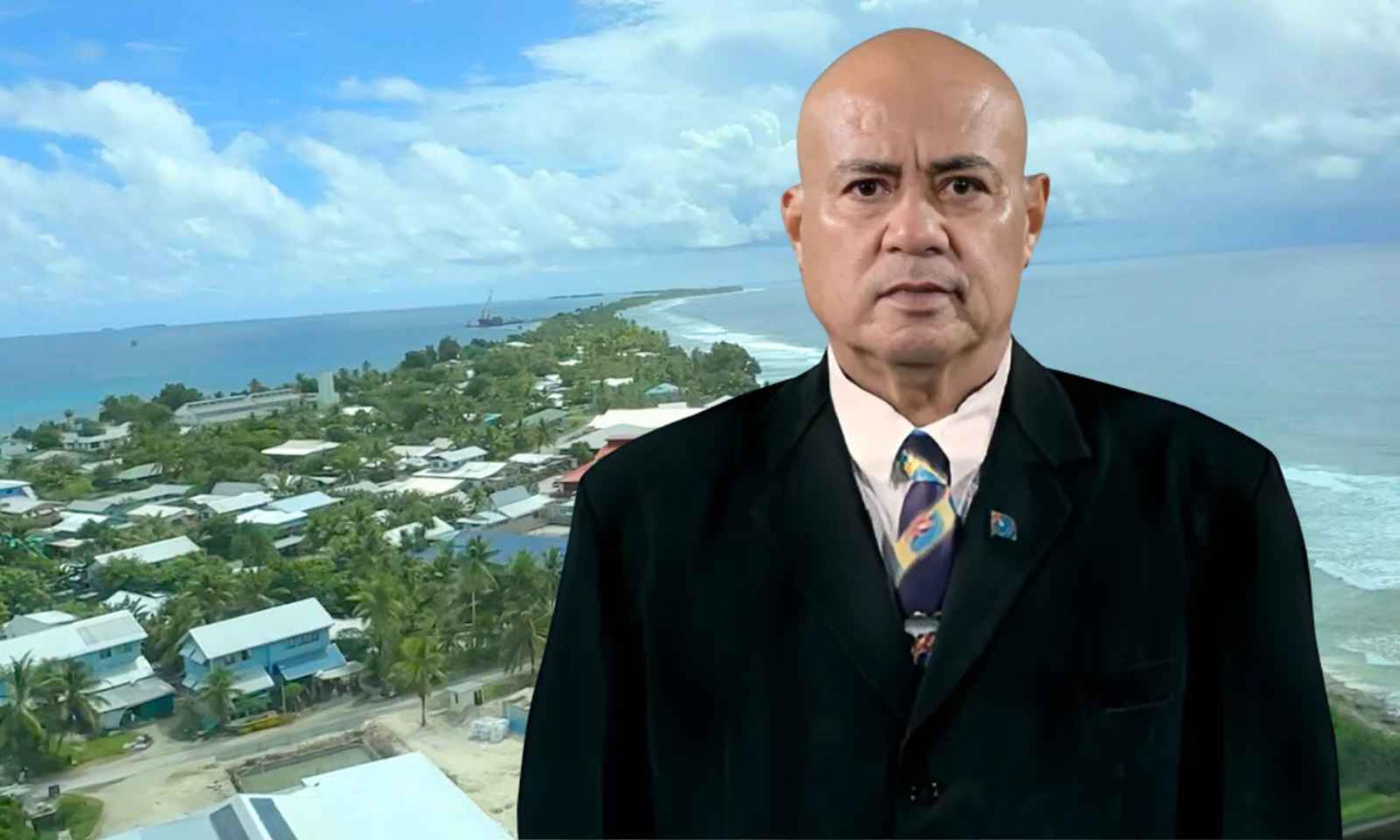
Tuvalu seeks official confirmation on mistaken inclusion in US travel ban
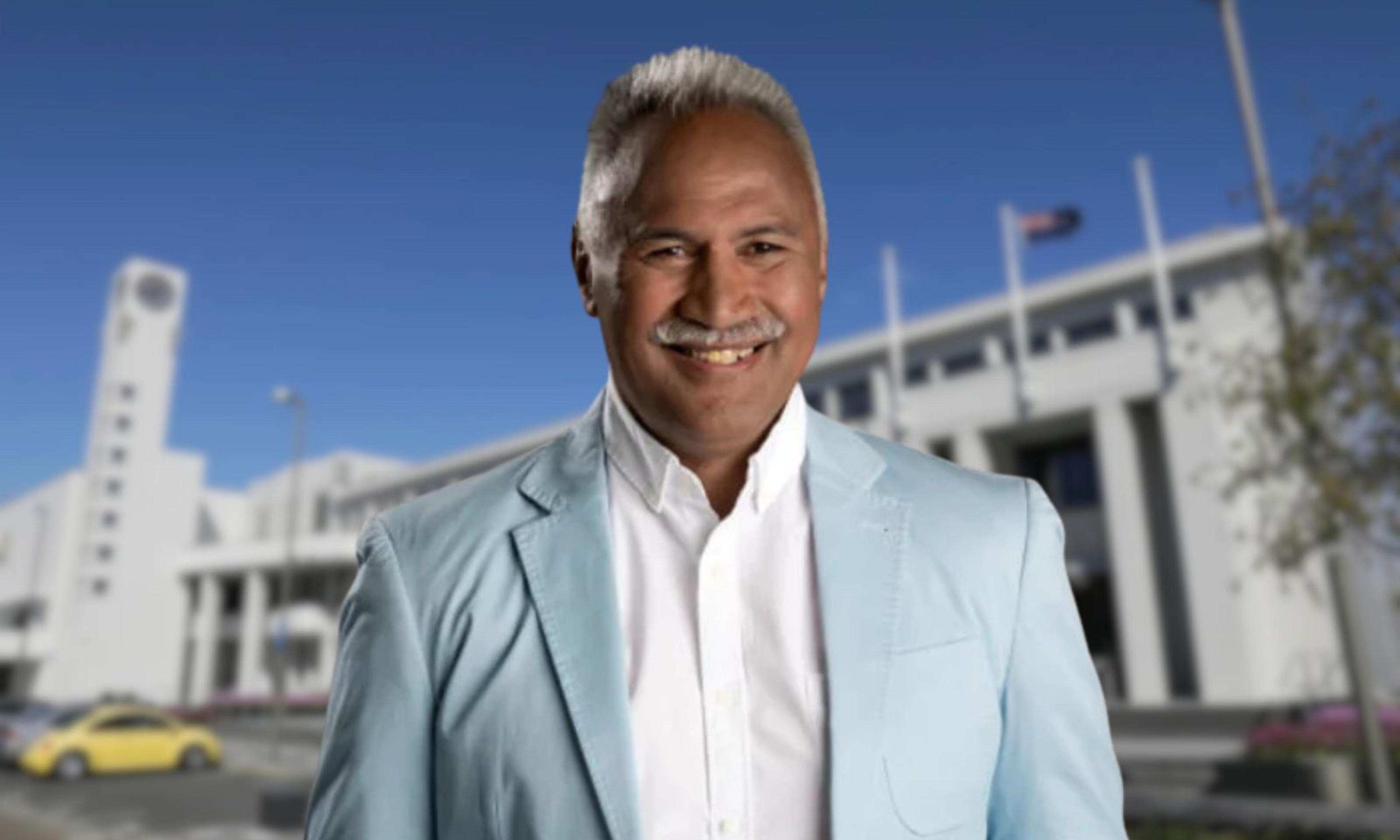
Fauono Ken Laban: First Pacific candidate for Lower Hutt city race

Northern Mystics reclaim top spot as finals race heats up

Māngere youth turn derelict houses into jobs and upskilling

Tuvalu seeks official confirmation on mistaken inclusion in US travel ban

Fauono Ken Laban: First Pacific candidate for Lower Hutt city race

Northern Mystics reclaim top spot as finals race heats up
If Fijians do not unpack the issues that have led to situations such as military coups and ethnic cleansing, plunging the country into a human rights and humanitarian catastrophe, they run the risk of another political upheaval in the next 10 years.
Those are the words of one of Fiji’s award-winning journalists and political commentators, Netani Rika.
The Publisher and owner of Islands Business and Fiji Traveler magazines told Pacific Mornings’ William Terite that Fijians need to deal with these issues in the open and bring about healing.
Watch Netani Rika’s full interview below.
Rika’s comments came after former Fijian prime minister and military strongman Frank Bainimarama and suspended police commissioner Sitiveni Qiliho were sentenced in the High Court in Suva over a week ago amid tight police security.
Bainimarama, 69, was jailed for one year for seeking to pervert the course of justice in the University of the South Pacific corruption case. He had instructed Qiliho not to investigate allegations of financial mismanagement at the regional university, which is owned by 12 Pacific island nations.
Qiliho, a former military officer, was sentenced to two years in prison. Both men have denied the charges.
At the time, chief prosecutor Christopher Pryde said the former prime minister and the suspended police chief were alleged to have arbitrarily and in abuse of the authority of their respective offices, terminated an active police investigation.
Fiji’s acting Chief Justice, Salesi Temo, overturned Bainimarama’s acquittal by magistrate Seini Puamau last month and imposed the prison sentences on 9 May.
Local media reported Bainimarama’s supporters were gathered outside the Suva High Court, singing a Fijian hymn after the sentencing was announced.
Bainimarama came to power after leading a military coup in 2006 before winning democratic elections in 2014 and 2018.
He lost the general election in December 2022 to a coalition of parties, led by the incumbent prime minister Sitiveni Rabuka, who himself had staged the country’s first two military coups when he was an army colonel.
On 14 May 1987, he staged the first coup to reassert ethnic Fijian supremacy, following the 1987 election, which had brought an ethnic Indian-dominated government to power.
Rabuka was seen as a hero by the indigenous population when he overthrew Fiji's first Indian government to install the indigenous Fijian ruling class.
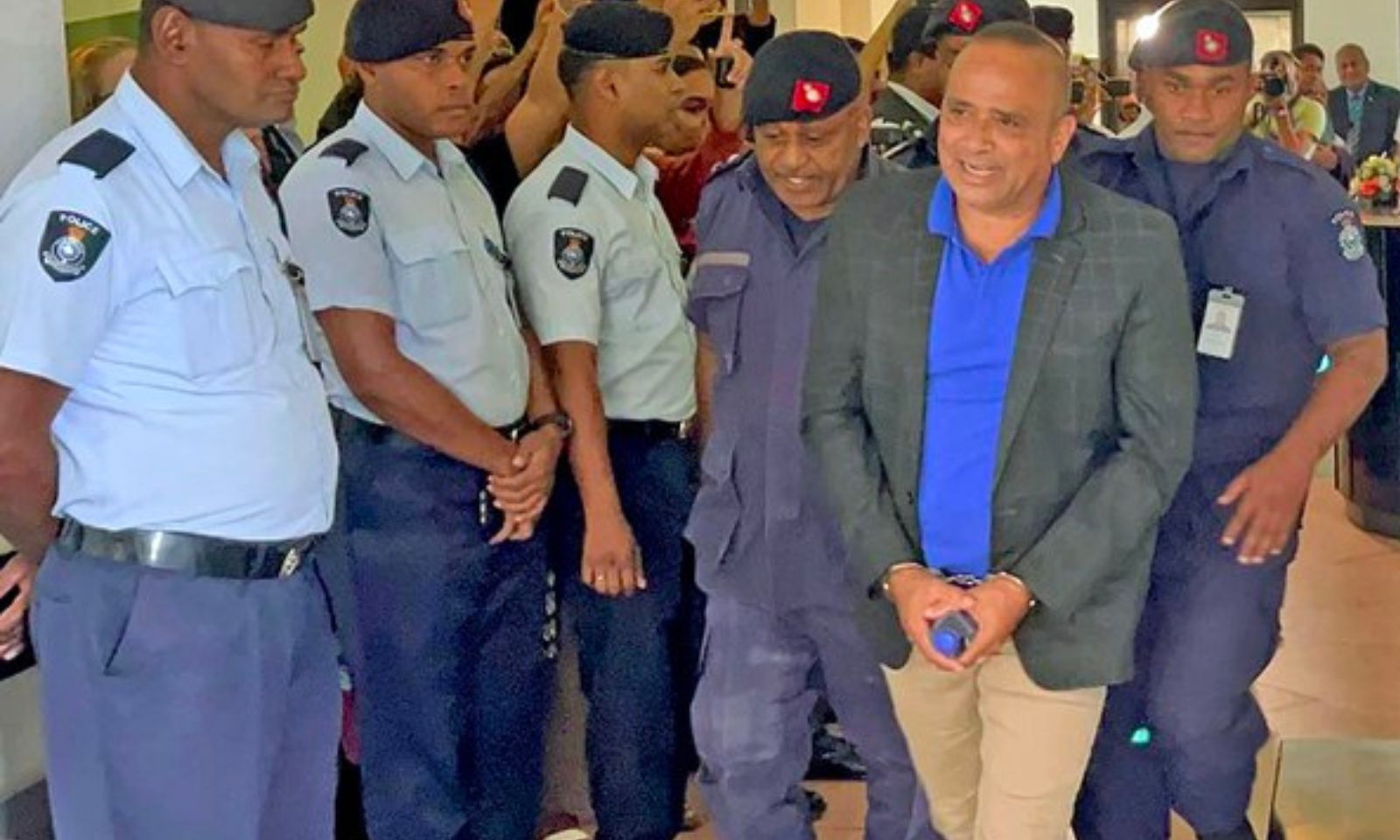
Former Fiji police commissioner and army officer Sitiveni Qiliho will spend two years in prison for abuse of office. Photo/supplied
Rika said Bainimarama’s sentencing gained the attention of not only the Fiji public but also across the Pacific.
“Many people have been waiting for Bainimarama and Qiliho to face their day in court, perhaps not on these charges, but for other things that they did over the last 16 years or so.
“And now that they've gone to jail, the excitement seems to have subsided. It was there last week and now it's as if everything's back to normal.”
The former editor-in-chief of The Fiji Times (owned by Rupert Murdoch at the time) with more than 30 years of experience in the industry said while there was a lot of social media activity around the case, the excitement or the attention was quickly dissipating.
“People are more excited now in getting pictures of Bainimarama and Qiliho in their orange uniforms, the prison uniform in Fiji. Attention has sort of turned away from the case for the time being and I think we'll see more comments, and more opinions on the case when it comes up for appeal.
“But in terms of public disturbance, no. The situation is under control. The police and the Home Affairs Ministry have reminded the public that they have the situation under control.
“People understand that there's a process and that process has to be followed to the end. I think people are fed up with what violence does in this country. I don't see us going down that path. There's certainly a lot of agitation on social media, but social media is social media and, not everyone has access to it.”
Leader of the opposition Unity Fiji Party Savenaca Narube said everybody would need to follow the law.
He said for those who did not agree with the ruling, there was a court process to follow.
“That’s what democracy is all about. The court case and sentencing show that the accountability framework is working and that people who break the law, no matter who they are, will be held to account.”
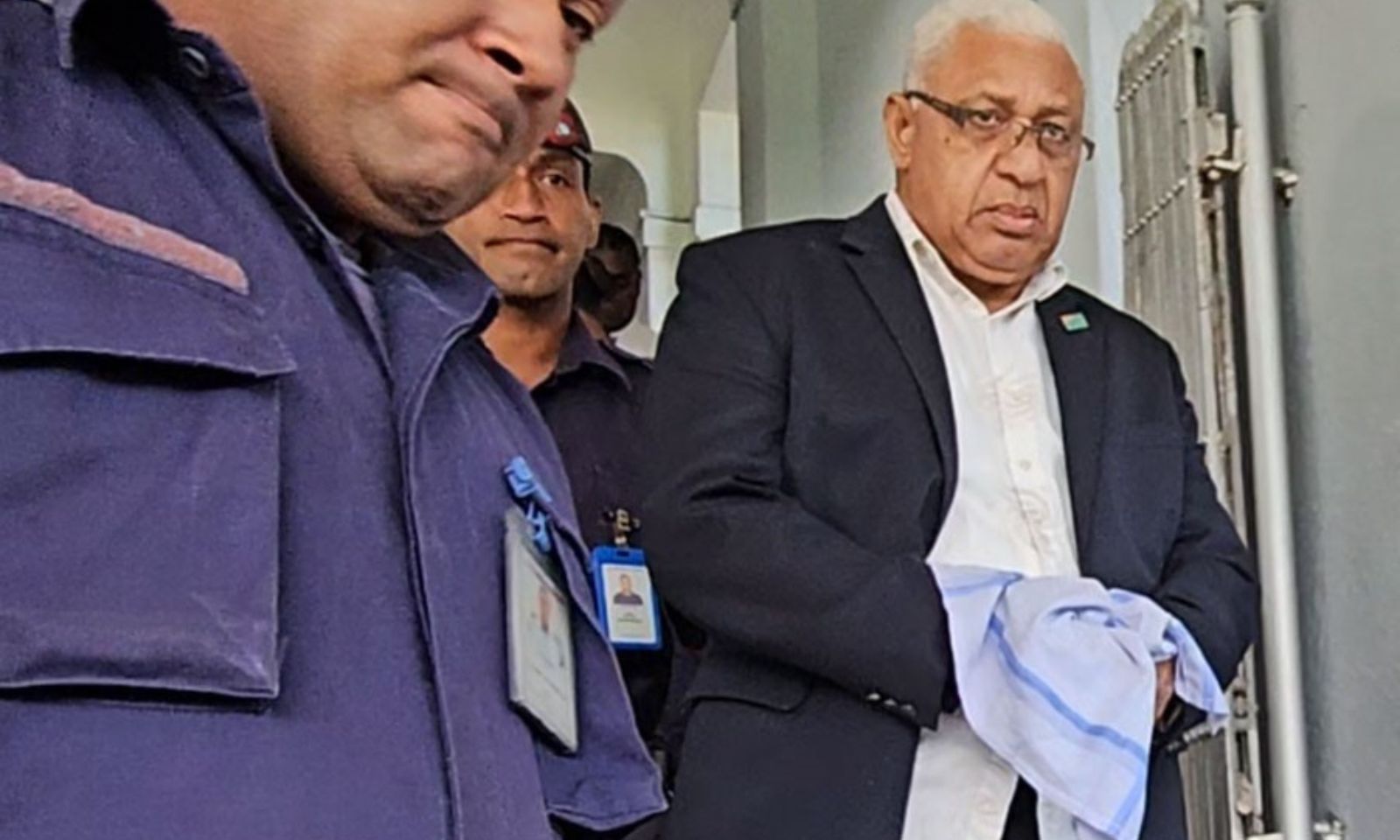
Bainimarama is led by police out of the high court in Suva after being sentenced to a year in prison for seeking to pervert the course of justice. Photo/supplied
Rika said Fijians also need to “get out of this cycle of violence, get out of this cycle of removing the government when we are unhappy with the result of an election”.
He said people need to understand the electoral procedures and the law, “and our leaders need to play a big part in doing that, in making people understand how democracy - in inverted commas - works.
“Having said that, there's also a need for us to unpack the issues which have led to the situation we are in. The misconceptions, and misunderstandings that exist between our communities go back since before..... I hesitate to use colonisation, but before people other than the islanders arrived.
“We need to go back that far to understand the differences that we face and understand the hurt that has been caused in the last 200-odd years and then go some way towards bringing about a procedure of a process of healing.
“The constitution of 1997 provided for the Truth and Reconciliation Commission and we haven't yet used that.
“Although the Fiji Military Forces and its current commander are looking at an institutional healing process, that's a good start. I think we have a lot to learn from there, but if we do not unpack our issues, deal with them in the open, and bring about healing, then we run the risk of facing another coup of military or political upheaval within the next 10 years.”
Rabuka said he had visited Bainimarama at the Korovou Prison last Friday and during their conversation, he told his predecessor the following day he would be commissioning the Fiji Navy’s newest vessel RFNS PUAMAU.
“It's a project that the former prime minister had been working on during his time as commander of the Fiji Navy and in government. And now, it gives me immense pleasure to see his efforts come to fruition,” Rabuka said.
“Let us continue to support and uplift each other as we work towards a brighter future for our beloved Fiji.”
Bainimarama is not the only Fijian PM to be imprisoned. The late Laisenia Qarase was found guilty in July 2012 of abusing his office and failing to perform his duties. 4
Court documents revealed that the 71-year-old former prime minister failed to disclose a private investment interest in three companies that he was helping manage in an official capacity some 20 years earlier.
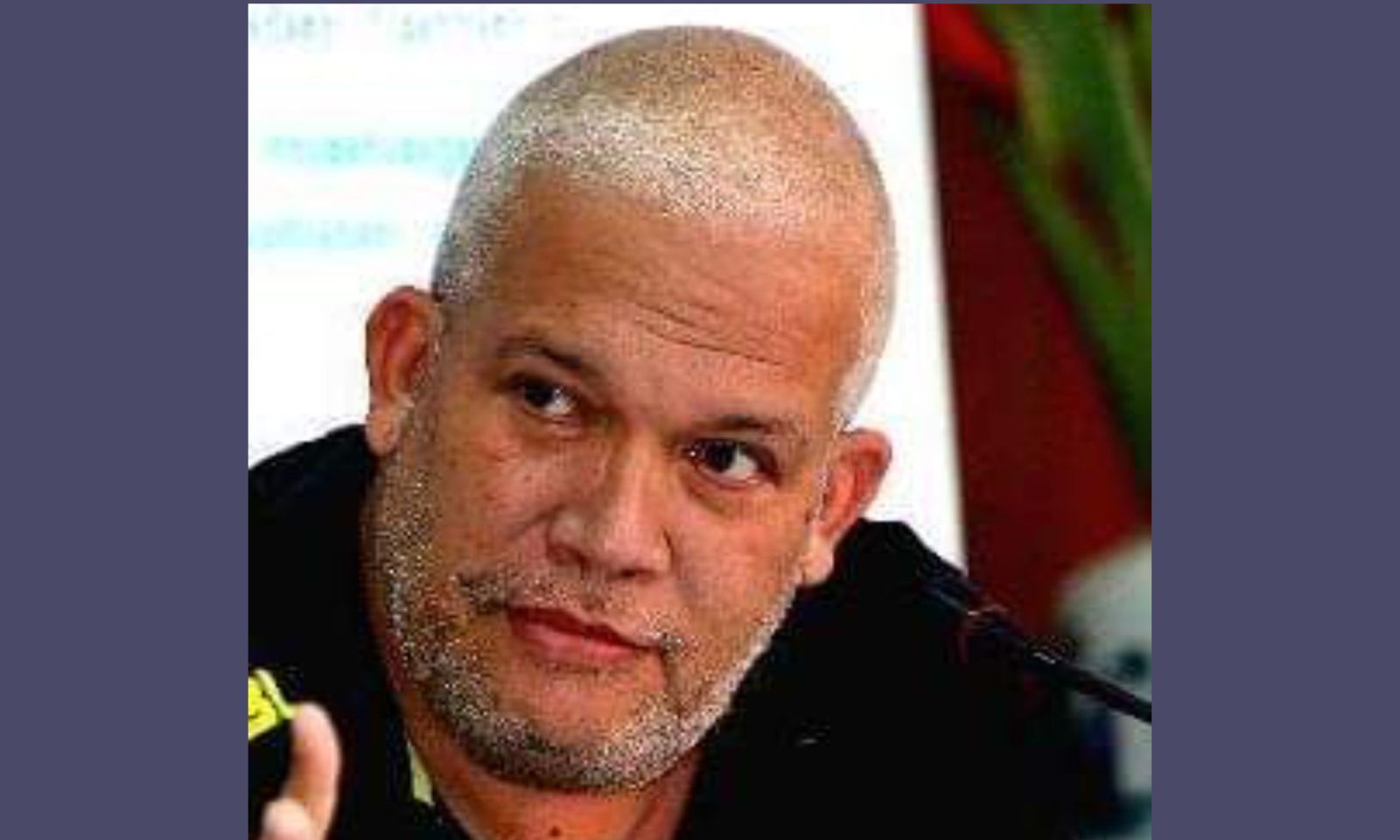
Fijian political expert Netani Rika says people need to understand the electoral procedures and the law. Photo/supplied
Qarase served six years as prime minister before being ousted by Bainimarama in the 2006 coup. It was Qarase who was handed the interim PM position by Bainimarama following the 19 May 2000 coup, which marked 24 years on Sunday.
But the relationship between the two men soured after Bainimarama made clear his disdain for Qarase and the former PM’s political policy of favouring the indigenous Fijians ahead of other ethnic groups.
Bainimarama’s legal team, which has been contacted for comment, is expected to appeal Justice Temo’s decision.
His party, the FijiFirst, said he remained their leader even in prison. Aiyaz Sayed-Khaiyum, a senior party member and former attorney-general, said Bainimarama would continue at the helm of Fiji First and into the next general elections in 2026.
“He is one of the three party founders which also includes Salesh Kumar and myself as the third and no matter what, irrespective of what happens, he will continue to be the leader of FijiFirst,” Sayed-Khaiyum said.
In February, Bainimarama was also charged alongside Saiyed-Khaiyum and a former health minister Dr Neil Prakash Sharma on a charge related to abuse of office - allegedly failing to comply with statutory requirements for tenders.
Bainimarama and Sayed-Khaiyum were each accused of recklessly abusing their positions by granting a waiver of the tender process without lawful justification. Sayed-Khaiyum is also charged with obstructing the course of justice. Sharma faces four counts of abuse of office. They were bailed.
Sayed-Khaiyum is also set to return to court next month on charges relating to abusing his authority as acting prime minister between June 30 and July 12 of 2022.
He is alleged to have agreed to pay the taxes of former elections chief Mohammed Saneem without the proper approval of Fiji's Constitutional Offices Commission and the President. Saneem has also been charged with one count of receiving a corrupt benefit.
While employed as the supervisor of elections, Saneem allegedly - without lawful authority and reasonable excuse - asked for, and obtained a benefit for himself, the approval and payment of deductible tax relief of more than FJ$50,000 (NZ$36,560) on his back pay from Sayed-Khaiyum.
Sayed-Khaiyum is set to reappear in court on 10 June.
Watch Fijian political analyst Jope Tarai's interview below.